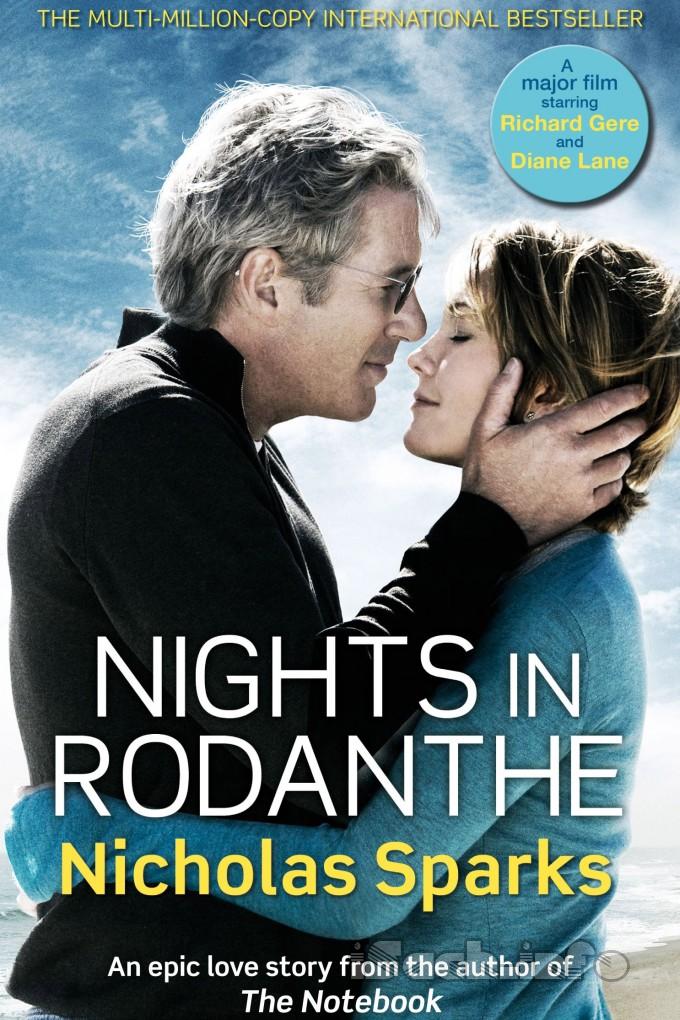Chapter 17
T
he letter, Amanda saw, had been written on the same notebook paper that Paul had used to write the note. Noticing that her hands were trembling slightly, Amanda laid them flat on the table.Then, with a deep breath, she lowered her gaze.
Dear Adrienne,
As I sit here, I realize that I don’t even know how I’m supposed to begin a letter like this. After all, we’ve never met, and though I know of you through my father, it’s not the same. Fart of me wishes I was able to do this in person, but due to my injuries, I couldn’t leave just yet. So here I am, struggling for words, and wondering if anything I write will mean anything at all.
I’m sorry that I didn’t call, but then, I decided that it wasn’t going to be any easier to hear what I have to say.
I’m still trying to make sense of it myself, and that’s part of the reason I’m writing.
I know my father told you about me, but I think it’s important that you know our history from my perspective. My hope is that it’ll give you a good idea of the man who loved you.
You have to understand that when I was growing up, I didn’t have a father. Yes, he lived in the house; yes, he provided for my mom and me; but he was never around, unless it was to reprimand me about the B I’d received on a report card. I remember that when I was a kid, my school had a science fair that I participated in every year, and from kindergarten through eighth grade, my father never made it once. He never took me to a baseball game, or played catch in the yard, or even went with me on a bike ride. He mentioned that he’d told you some of this, but believe me when I tell you that it was worse than he probably made it seem. When I left for Ecuador, I honestly remember hoping that I’d never see him again.
Then, of all things, he decided to come here, to be with me. You have to understand that deep down, there’d always been an arrogance about my father that I’d grown to detest, and I figured he was coming down because of that. I could imagine him suddenly trying to act like a father, dishing out advice that I didn’t need or want. Or reorganizing the clinic to make it more efficient, or coming up with brilliant ideas to make the place more livable for us. Or even calling in some debts owed to him over the years to bring a whole crew of young volunteer physicians to
work at the clinic, all the while making sure the entire press corps back home knew exactly who was responsible for all the good deeds. My father had always loved to see his name in print, and he was acutely aware of what good publicity could do for him and his practice. By the time he arrived, I was actually thinking of packing my bags and going home, leaving him behind. I had a dozen responses lined up for just about anything I thought he might say. Apology? A little late for that. Good to see you? Wish I could say the same. I think we should talk? I don’t think that would be a good idea, Instead, all he said was, “Hey,” and when he saw my expression, he simply nodded and walked away. That was our only contact during the first week he was there.
It didn’t get much better right away. For months, I kept expecting him to revert to his old ways, and I watched for it, ready to call him on it. But he never did. He never complained about the work or the conditions, he offered suggestions only when asked directly, and though he never took credit for it, the director finally admitted that my father had been the one who supplied the new medicines and equipment we’d desperately needed, though he’d insisted that his gift remain anonymous.
What I think I most appreciated was that he didn’t pretend we were something we weren’t. For months, we weren’t friends and I didn’t regard him as a father, yet he never tried to change my mind about those things. He didn’t pressure me in any way, and I think that’s when I began to let my guard down about him.
I guess what I’m trying to say is that my father had changed, and little by little, I began to think there was something about him that was worth a second chance. And though I know he’d made some changes before he met you, you were the main reason he became the person he did. Before he met you, he was trying to find something. After you came along, he’d already found it.
My father talked about you all the time, and I can only imagine how many letters he must have sent you. He loved you, but I’m sure you know that. What you might not know is that before you came along, I’m not entirely convinced that he knew what loving someone meant. My father had accomplished a lot of things in his life, but I’m certain he would have traded it all for a lifetime with you instead. Considering he was married to my mother, it isn’t easy for me to write this, but I thought you’d want to know. And part of me knows that he would be pleased at the thought that I understood how much you meant to him.
Somehow, you changed my father, and because of you, I wouldn’t trade this last year for anything. I don’t know how you did it, but you made my father into a man that I miss already. You saved him, and by doing so, I guess that in a way, you saved me as well.
He was at the outreach clinic in the mountains because of me, you know. It was absolutely terrible that night. It hail been raining for days, roads everywhere washing out in the mud. When I radioed the main clinic to say that I couldn’t make it hack because my Jeep wouldn’t start, and that a major mudslide was imminent, he was the one who
commandeered another Jeep—over the director’s frantic protests—to try to reach me. My dad came to save me, and when I saw it was him sitting behind the wheel, I think it was the first time I’d ever thought of him in that way. Until that point, he’d always been my father, but not my dad, if you know what I mean.
We made it out just in rime. Within minutes, we heard the roar as the side of the mountain gave way, destroying the outreach clinic instantly, and I remember that we glanced at each other then, unable to believe how close it had been.
I wish I could tell you what went wrong after that, but I can’t. He was driving carefully and we’d almost made it back. I could even see the lights from the clinic in the valley below, But suddenly, the Jeep started to skid as we rounded a sharp curve, and the next thing I knew, we were off the road and tumbling down the mountain.
Other than breaking my arm and several ribs, I was okay, but I knew immediately that my dad wasn’t. I remember screaming at him to hold on, that I’d go get help, but he grabbed my hand and held me in place. I think even he knew it was almost over, and he wanted me to stay with him.
Then, this man who had just saved my life asked me to forgive him.
He loved you, Adrienne. Please don’t ever forget that. Despite the short time you spent with him, he adored you, and I’m terribly sorry for your loss. When things are hard, as they are for me, fall back on the knowledge that not only would he have done the same thing for you that he did
for me, but because of you, I was given the chance to get
to know, and love, my dad.
I guess what I’m trying to say is, thank you.
Mark Flanner
Amanda lowered the letter to the table. It was almost dark in the kitchen now, and she could hear the sound of her own breath. Her mother had stayed in the living room, alone with her thoughts, and Amanda folded the letter, thinking of Paul now, thinking of her mother, and, oddly, thinking of Brent.
With effort, she could recall that Christmas so many years ago—how quiet her mother had been, the smiles that always seemed a little forced, the unexplained tears that they’d all assumed had something to do with their father.
And, through it all, she had said nothing.
Despite the fact that her mother and Paul hadn’t had the years together that she’d had with Brent, Amanda knew with sudden certainty that Paul’s death had struck her mother with the same intensity that Amanda experienced when sitting beside Brent’s bed for the very last time—with one difference.
Unlike her, her mother hadn’t been given the chance to say good-bye.
When she heard the muted sounds of her daughter’s sobs, Adrienne turned from the window in the living room
and made her way to the kitchen. Amanda looked up in silence, her eyes filled with unspoken anguish.
Adrienne stood without moving, watching her daughter, then finally opened her arms. Instinctively Amanda rose, trying and failing to stop her tears, and mother and daughter stood in the kitchen, holding each other for a long, long time.



 ePub
ePub A4
A4